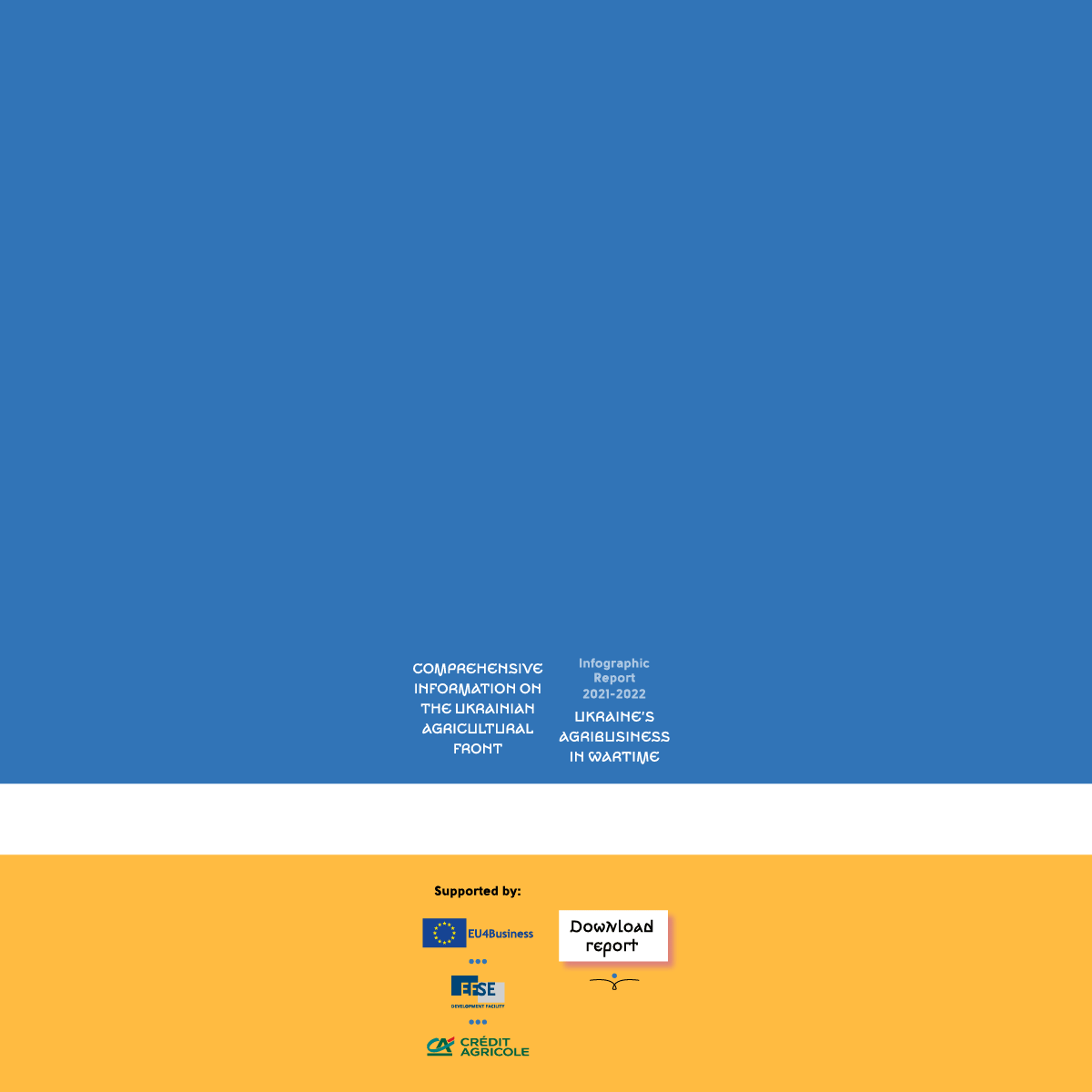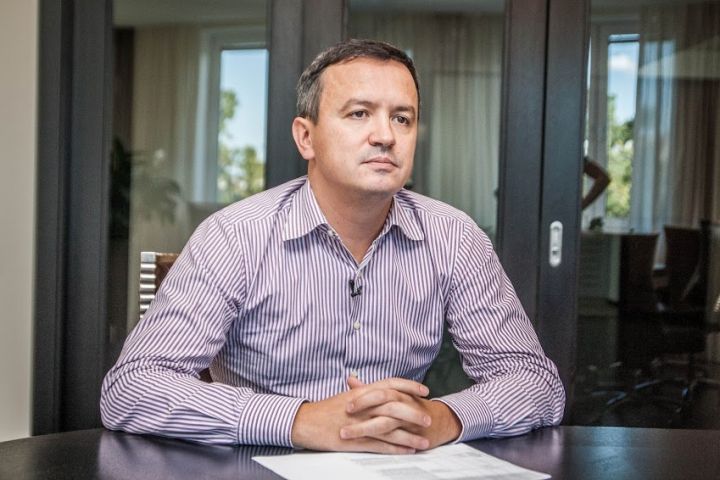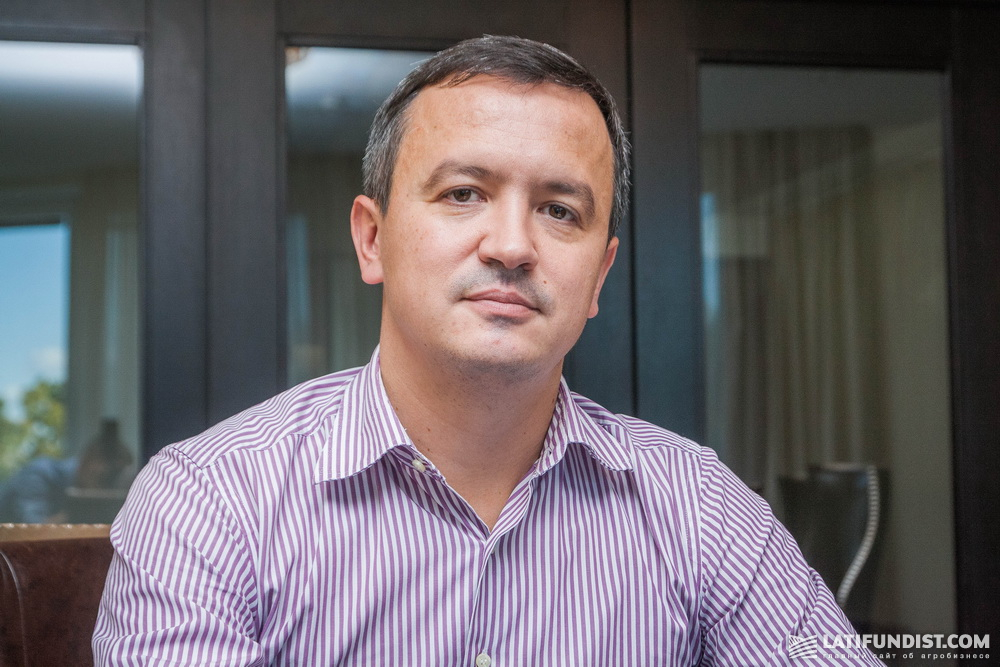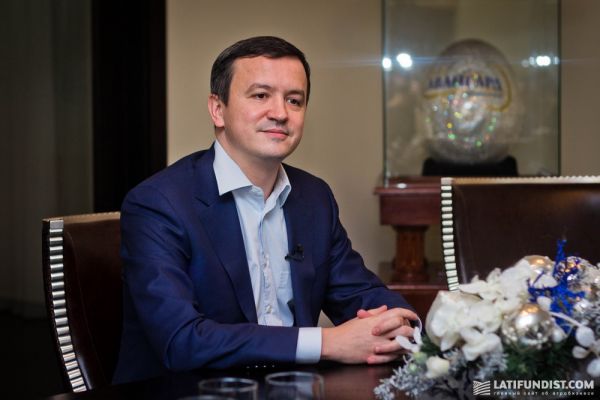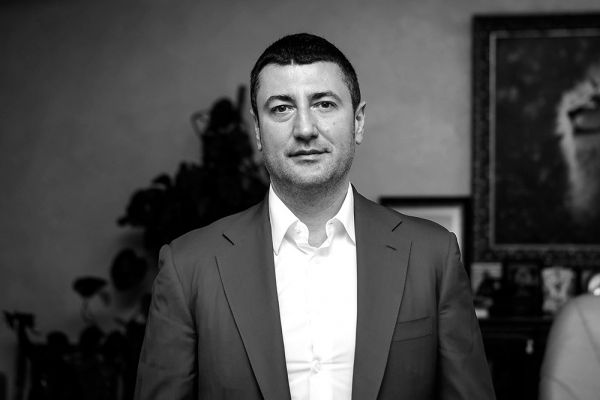To learn more about agribusiness in Ukraine, follow us on Facebook, on our channel in Telegram, and subscribe to our newsletter.
Igor Petrashko: Liquidating Ukrlandfarming Equals a Nuclear Strike
In early February, the Ukrlandfarming group of companies and the agricultural holding Avangard signed an agreement on restructuring their obligations to the State Savings Bank of Ukraine (Oschadbank) in the amount of UAH 4.4 billion. Now, agricultural producers set new targets — to make a profit, to open new markets and to preserve the current landbank. Igor Petrashko, Deputy CEO of Ukrlandfarming, spoke with Latifundist.com about the difficulties of the restructuring process, criminal cases and the upcoming planting campaign.
Latifundist.com: How long did the negotiations on restructuring with Oschadbank last?
Igor Petrashko: The process lasted long enough. Frankly, we began negotiating the restructuring in early 2018 and agreed that we would act within the framework of the Law “On Financial Restructuring”. In fact, this was the only way to reach constructive agreements. The procedure itself took exactly six months, and the contract was signed on the last day. This proves that the negotiations were complex.
The specificity of our case lies in the fact that several companies belonging to the Group had loans with Oschadbank. And the question arose whether to take into account only those companies or the whole Group. In the end, we chose the right path. An independent analysis of the entire business was done which showed that we have great prospects and we do need restructuring.
Learn more: Oleg Bakhmatyuk: I Will Solve My Problems Without Involving the President
Here it must be understood (and the Head of Oschadbank spoke about this) that this is a large socially significant company. The volume of annually produced by Ukrlandfarming products is equivalent to 1% of Ukraine’s GDP. We pay billions of taxes. The need for restructuring arose primarily from the substantial loss of the company's assets in the Crimea, in Donetsk and Lugansk regions or about 40% of the total company assets at that time.
The Group invested all credit funds in the assets: factories, feed mills, elevators, seed plants and machinery. In addition, Avangard was significantly affected by devaluation. The profitability of Avangard decreased from USD 300 million to USD 10 million. Thus, our case was not an ordinary one. As a result, our agreements became one of the few truly successful examples of a comprehensive restructuring.
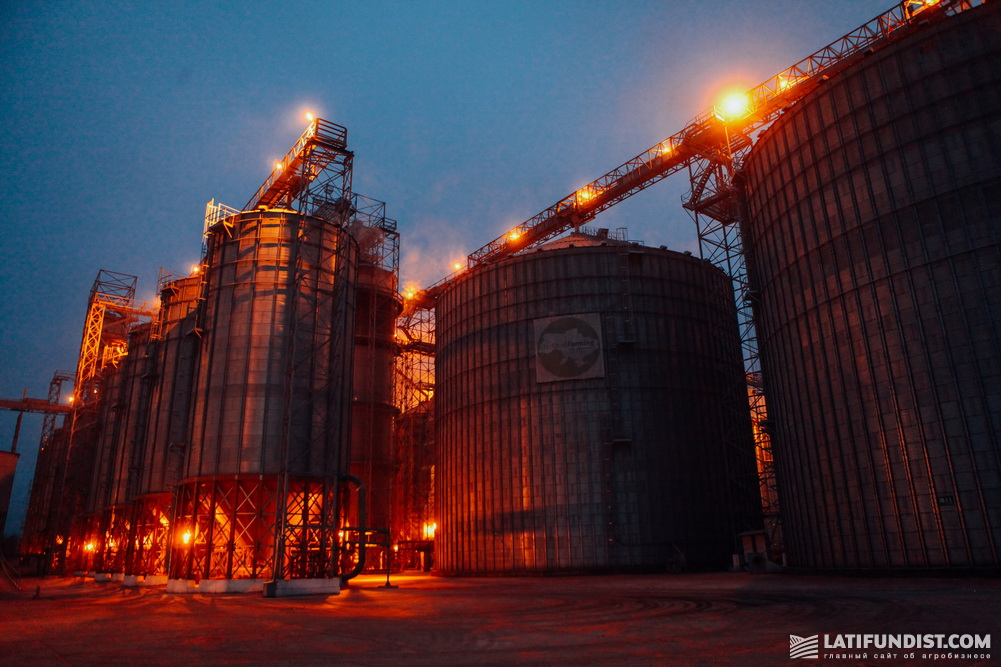
Latifundist.com: Could you speak on the restructuring terms?
Igor Petrashko: I can only say that the conditions provide for a long-term return of funds (we are not talking about any debt relief). The payment of debt accumulated for the previous period is also provided for. Everything will be paid. From the point of view of the company's financial model, it also provides for the payment of loans to other banks, including international ones. Negotiations are underway with the Deposit Guarantee Fund (DGF) and Ukreximbank. So, the loan in Ukreximbank totals USD 67 million plus accrued interest.
Latifundist.com: In this case, a successful restructuring with Oschadbank can be a good start in working with other financial institutions.
Igor Petrashko: We hope this to happen. And most of all we rely on this to work with Ukreximbank. Although, it is more complicated with the DGF. It has legal restrictions. Unfortunately, the DGF cannot be engaged in long-term restructuring, but in this case, we are searching for a solution. We agree on the terms of restructuring (following the example of Oschadbank) with our other creditors.
We understand that the practice of forced sale of assets and conflicts leads to the depreciation of the assets and the losses (shutdown). As a result, there starts the discharge of employees, the reduction of exports and tax payments. For example, lately, the NBU and the DGF sell toxic assets for 1.5-2% of the nominal value. We, on the example of agreements with Oschadbank, have shown that there is an alternative way.
Latifundist.com: During a recent conversation at the Ukrainian-Saudi round table, you said that 2019 is a year of restructuring. How fruitful are your negotiations with international banks?
Igor Petrashko: As expected, the negotiations are delicate. Our foreign creditors can be divided into two groups. With the banks of the first group, we will come to a decision in the next six months. In the main, these are financial institutions secured by solid pledges and shares. The second group is unsecured creditors. These are mainly European credit organizations, plus bondholders. They have a more complex decision-making process, which includes an analysis of the prospects of the Group's activities.
Latifundist.com: Perhaps, you suggest international creditors tough conditions for a debt write-off.
Igor Petrashko: These conditions are based on the forecast cash flow and the discount rate. We offer lenders the entire available resource the Group generates. Distribution between lenders takes into account the loan currency adjusted for existing collateral. The NBU discount rate is now 18%, so the hryvnia flows are discounted at the rate of 18% +. The discount rate for foreign currency loans is lower. Therefore, in order to bring the cost of loans to one base today (the pari-passu principle), a direct write-off on foreign currency loans is required. Unfortunately, under other conditions, cash flows are not balanced.
The company has detailed settlement terms for all international lenders. They are based on the fact that we give the entire cash flow plus upside in the form of additional cash flow. What is agreed on with Oschadbank? In case we have better financial results than those that are spelt out in the financial model, Oschadbank receives upside. Therefore, we expect that the restructuring case with this bank will be exemplary and will give a positive impetus to our foreign lenders. We have already sent updated offers to all foreign lenders.
Latifundist.com: Which ones are those?
Igor Petrashko: Those are European and American export credit agencies, investors in bonds issued by the Group and members of the syndicate. We have an ongoing negotiation with them. I think we will manage to convince them, as this is the only constructive way.
Why set off a nuclear bomb? Why liquidate the company if this brings negative consequences for them? Moreover, we do not hide, we are negotiating transparently. Yes, we would prefer to solve everything at once, but, unfortunately, this does not happen.
Latifundist.com: Let us talk about operational processes. How ready is Ukrlandfarming for planting campaign 2019? Have you estimated the cost of the campaign this year?
Igor Petrashko: We are ready for spring fieldwork. Now we are engaged in plant protection products and fertilizers procurement. Purchases are made in normal mode. Like last year, we will carry out the sowing campaign without attracting credit funds. For several years now, Ukrlandfarming has been operating its own resources.
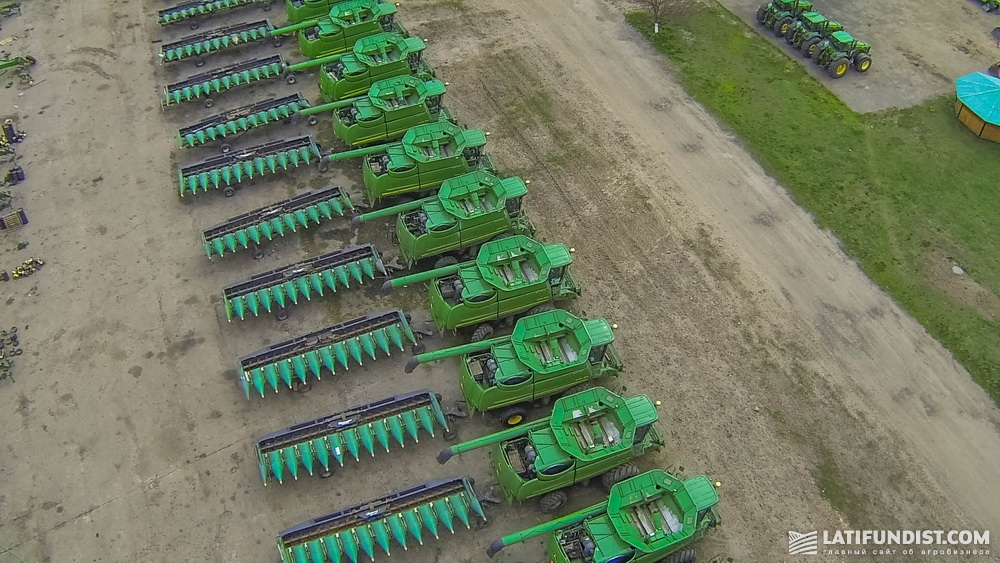
Learn more: Top Achievements of Ukraine's Leading Agricultural Companies in 2018
Latifundist.com: Last year, the planting campaign cost the company about USD 100 million. How much is it this year?
Igor Petrashko: This is a notional cost. You do understand that sowing moves on to the harvest of early grains fast, and so on. In fact, in a short period of time, more than UAH 3 billion is needed. But, again, the Group is ready for this. The harvest was rich, the produce is traded, the funds are received and used for financing. Therefore, we can safely say that we have prepared well for the sowing campaign.
Latifundist.com: Are there alterations in crop rotation? Is there a chance the company starts growing new crops? Earlier, Vladimir Babiy said that Ukrlandfarming was to introduce innovative platforms. What is meant?
Igor Petrashko: Yes, the company is constantly working on the introduction of new innovative solutions. There are several new directions. As for crop rotation, we do not plan significant changes, and we will maintain the same proportion of crops. You see, to change something significantly in a crop rotation is like playing the lottery. Market conditions can swiftly change. Hence, we rely first of all on our own production experience and successful results.
Latifundist.com: Has the land bank of Ukrlandfarming changed over this year?
Igor Petrashko: Considering that the company was in a difficult situation and used only its internal funds in limited volumes, unfortunately, we did lose part of the farmland. In previous years, we lost farmland in the Crimea, in Donetsk and Lugansk regions. Now we have more than 500 thou. hectares.
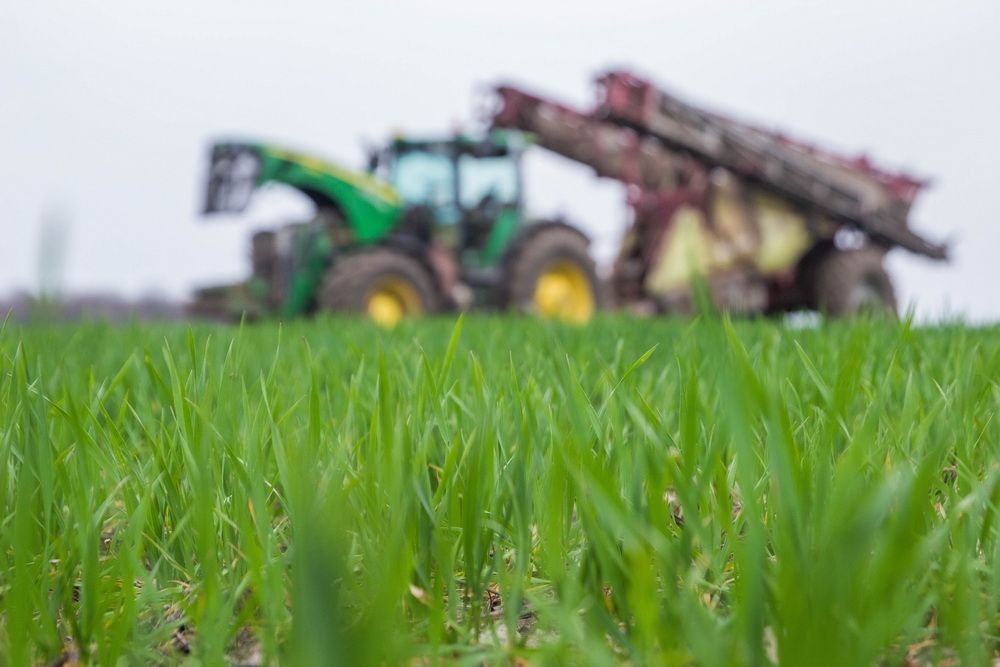
Latifundist.com: Were there cases when other agricultural companies or farmers caused damage to the company deliberately?
Igor Petrashko: Yes, there were. One should differentiate competitive processes from the struggle for rent on the part of other agricultural companies and attempts at illegal seizures using the so-called dual registration of lease rights. Such problems arose in Dnipropetrovsk and Lviv regions. But those were not widely spread. We have no conflicts with other large agroholdings. These are mainly local “smart dealers”, who want to grab 100-200 hectares and operate using absolutely illegal methods. We quickly fix and cancel double registrations and alike. However, there are attempts.
It is normal when there is fair competition for the land, the lease agreements on which end. We work with people in places, discuss the cost of rent, social projects. And it is completely different when there is a signed lease agreement, and they sign another agreement for the same land and try to take over the control through raider methods. We do not tolerate such things. This year we plan to strengthen the work with shareholders and we are developing a loyalty program.
Latifundist.com: Have you considered the implementation of various non-standard solutions? For example, some agricultural holdings work with public utility enterprises. Companies cooperate with the local authorities, provide equipment, etc.
Igor Petrashko: We will introduce and apply different approaches. Now calculations are underway. We will consider the options. But, of course, we analyze the experience of other agricultural companies. Work with shareholders is highly important. Now the price of renting land is high, and there is a lot of competition in regions with fertile land. Therefore, not only the rent is a decisive factor, but also the working conditions, the social factor in the village. Now it plays an important role when the shareholder decides on signing a contract.
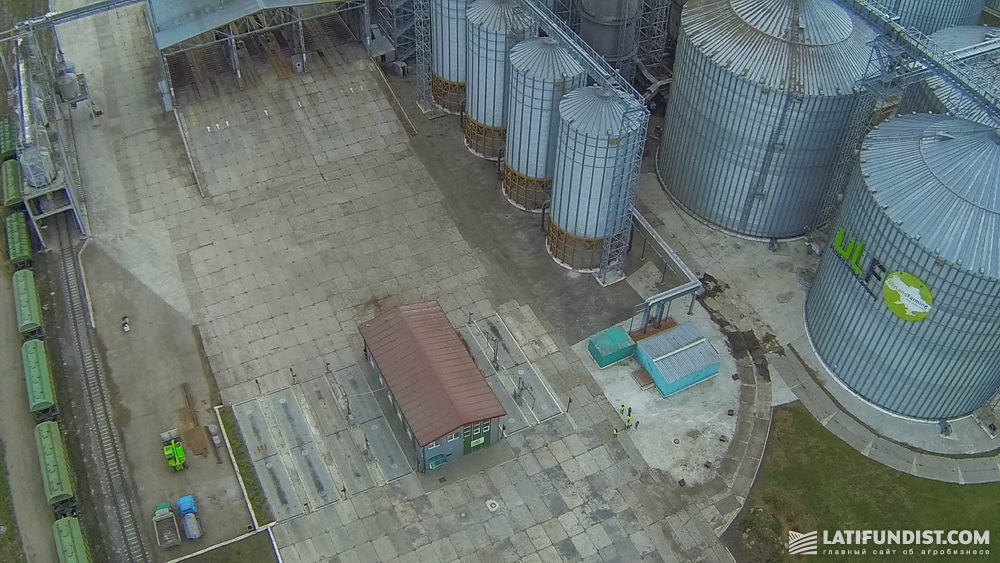
Latifundist.com: Back to the company’s assets. How do things stand with the terminal in the port of Yuzhny?
Igor Petrashko: Since we are in the process of restructuring, we cannot actively invest. Project implementation requires a partner. At the moment, we continue working with documents, coordinating with village councils and regional administrations. We are elaborating a detailed plan of the territory, technical permits, etc. But we are not planning on active construction yet.
Latifundist.com: You have earlier said that Avangard is actively developing exports. What part of the products is exported?
Igor Petrashko: Today, about 50% of the products are exported. We open new markets and expand our customer base. Egg powder almost completely goes to foreign markets. Last year, the company exported 6 thou. tons of this product. This year, we plan to export more. Egg exports are also constantly growing. In 2019, we plan to export 1 billion units.
Latifundist.com: Which countries do you export to?
Igor Petrashko: The markets of the Middle East remain the priority for us. At the same time, we actively export egg powder to the EU countries. We are planning to increase our presence in Saudi Arabia and the Asian region. We want to open the markets of China, Japan and South Korea. Expansion of the market geography for us means not only an increase in supply volumes but also an opportunity for the price increase.
Latifundist.com: What about Israel? Did you manage to at least partially regain the lost positions?
Igor Petrashko: No, not yet. Just last week, we discussed this. We want to resume deliveries to Israel.
Latifundist.com: Could you remind what the problem was then?
Igor Petrashko: Primarily, there was a problem with our controlling services, which simply introduced restrictive measures for Ukrainian companies without understanding the situation. At the same time, there were no reasons for ceasing the export. After all, the supply could be limited. Such mishandling played into the hands of our competitors from other countries.
Related story: Agricultural Protectionism: Open Border Saves the “National Interests”
Latifundist.com: Concluding our conversation, will you share the main goals of Ukrlandfarming for the current year?
Igor Petrashko: The year 2019 will be decisive for us in terms of reaching agreements with creditors. We must complete this process, turn the page and start working on new projects and opportunities like attracting funds for the port construction and others. There are plans to expand production in the egg segment, increase exports and achieve profitability of Avangard.
As for Ukrlandfarming, we are now working on stabilizing the land bank and carrying on comprehensive work with shareholders. We will search for optimal solutions as even this year the land bank will decrease. I do not think that in 2019 we will be able to increase farmland volume, but we are set to stop the process of losing land, and next year we will start working on increasing it.
Latifundist.com: We wish you luck and thank you for the interesting conversation!
Ekaterina Nikonchuk, Konstantin Tkachenko, Latifundist.com
